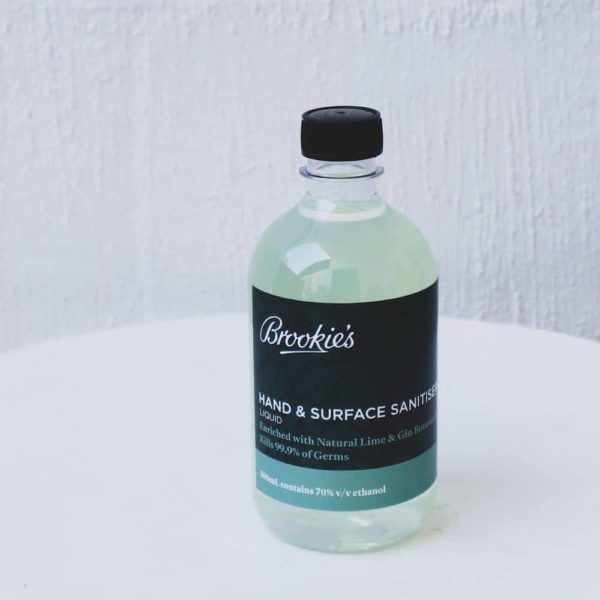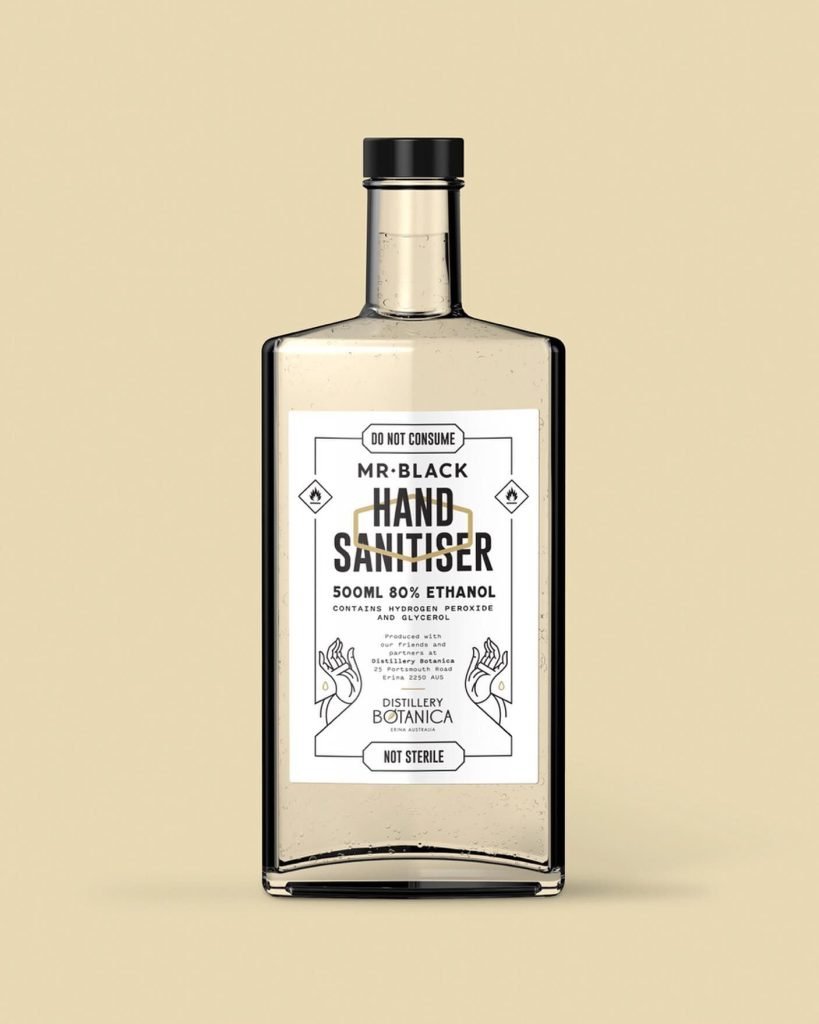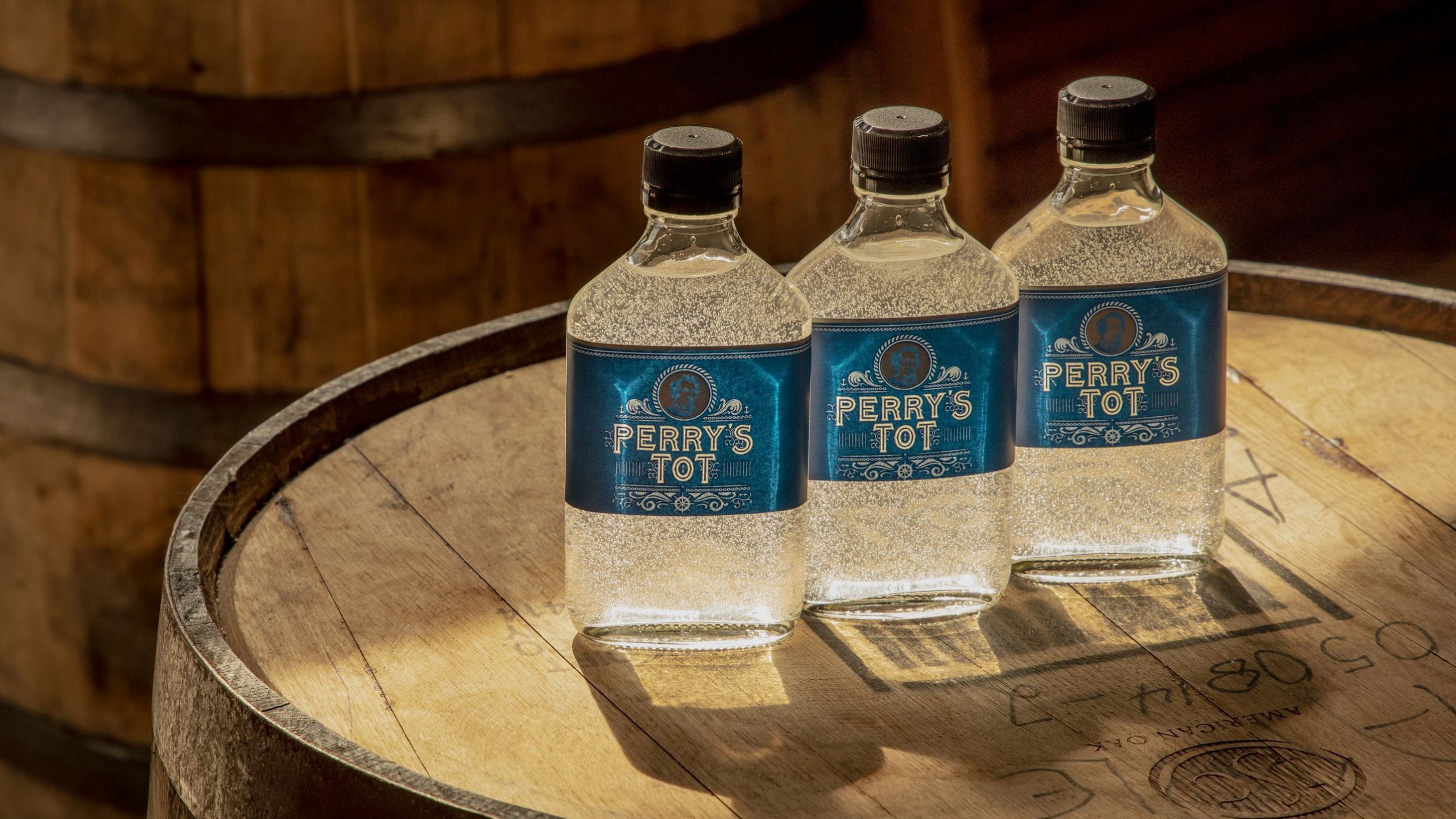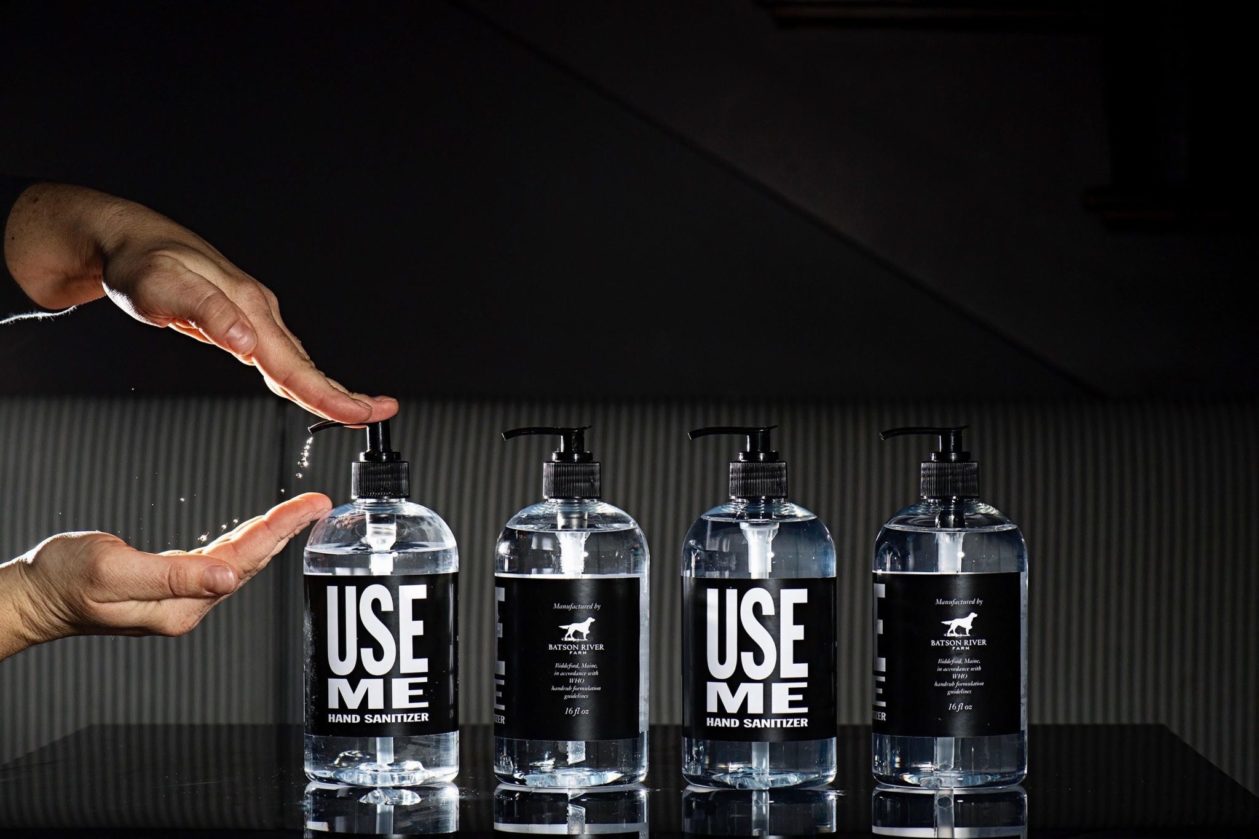There are many creative and innovative ways businesses are using what they have to support communities both locally and globally. One of the biggest trends we’re seeing right now is liquor companies using their resources to create hand sanitizer, sometimes in partnership with other companies. Brookie’s Gin, New York Distilling Company, Mr. Black and Kennebunkport Resort Collection with Batson River Brewing & Distilling are just a few of the companies that have started making and selling hand sanitizer during the COVID-19 pandemic.
“Never in a million years would I have thought we’d be making medical products,” said Tom Baker, cofounder of Mr. Black.
But many of the distilleries that Worth spoke with felt a need to use their companies’ resources to help health care workers, and the general public, while the making of their alcohol was stalled.

“With the swift onset of coronavirus in New York City, there was seemingly an immediate shortage of hand sanitizer,” explained Allen Katz, cofounder of New York Distilling Company. “We were aware of other distilleries who had started making [hand sanitizer] and started looking at recipes to see if it was feasible for us.”

“I think what makes it easier for alcohol companies, liquor companies, distilleries, is obviously they already have a supply of neutral grain spirits, and they also had an alcohol license, which is the founding for hand sanitizer,” said James Fowler, cofounder of S.E.A. Spirits. “So, there’s no sort of new regulations to go through for these companies. They have an existing supply of alcohol/ethanol, and they have the production and distilling licenses they need to do it. And with the increased demand due to the virus situation, it’s the right thing to do.”

With many of the necessary ingredients and liquor licenses already in place, many of these companies were able to turn around their hand sanitizers quickly. For Brookie’s Gin, it took about two weeks.
“The Brookie’s team switched focus from making gin and turned everything into making hand sanitizer; in less than two weeks they had to procure aloe vera, glycerine, bottles, caps, design and print labels, then produce and package the new sanitizer,” said Michael McAdam, cofounder of S.E.A. Spirits, Cape Byron Distilleries’ (producer of Brookie’s Gin) UK and European distributor.
Turnaround took about the same time for the Kennebunkport Resort Collection, and less than a week for Mr. Black.
Interestingly, while none of these companies had been creating hand sanitizer prior to the pandemic, a couple of the distilleries already had team members with the medical know-how to create an alcohol-based disinfectant. Pam Brook, cofounder of Brookie’s Gin, was formerly a dentist with her own practice, and Detlef Mohr, head of coffee at Mr. Black, is a chemist who spent well over a decade working in health care.


While these companies all have different areas of expertise and produce different types of spirits, the recipe used to concoct their hand sanitizers was largely the same, as most used the formula on the World Health Organization’s website. This means that all of the distilleries’ sanitizers are medical-grade—but that doesn’t mean they’re all the same.
“We started working with home recipes, mixing our un-proofed gin distillation with aloe vera,” Katz of New York Distilling Company said. “As the need increased (and is still ever-present), we quickly shifted to adopt WHO guidelines. This, and guidelines from [the] FDA, are the directives we and others are following.”
Brookie’s Gin also utilizes aloe vera in their sanitizer but adds another ingredient, as well.
“They use the ethanol which is distilled with native rainforest botanicals (the by-product of Brookie’s Gin), then add citrus oil and aloe vera as part of their hand sanitizer,” McAdam said. “It’s not a gel. It’s not like a hand gel that you maybe buy in a normal chemist or pharmacy. This is actually a liquid that’s used for sanitizing your hands and surfaces.”
Meanwhile, the distiller at Batson River is adding a completely different botanical.
“Our head distiller, Jon Quade, went straight to the WHO website and followed their recipe to the letter, then added our lavender essential oil to create a unique product,” said Tim Harrington, partner and creative director of Kennebunkport Resort Collection.
Apart from being able to help the community during this time of crisis by providing an essential product, one of the upsides of these companies being able to produce hand sanitizer is their ability to keep workers employed. Kennebunkport Resort Collection used this as an opportunity to hire back some of the employees they had originally been forced to let go.
“Due to the impact of the COVID-19 crisis, we, unfortunately, had to lay off many of our hotel and restaurant workers throughout the Kennebunkport Resort Collection,” Harrington said. “When we began making and distributing the hand sanitizer at Batson’s, we made the decision to hire some staff back on in distillery operations. Making the hand sanitizer isn’t just about profits, it’s about keeping people employed and doing everything we can to help support those in need.”
But the question still remains, will these companies continue to produce and sell hand sanitizer after the pandemic is over? The answer varies.
“We absolutely hope not,” said Baker of Mr. Black.
“I don’t think so,” said Katz of New York Distilling Company. “We are really looking forward to getting back to distilling gin and rye whiskey and sharing it with the public.”

“While Use Me was created to solve a virus-related shortage, we plan to keep producing the sanitizer after the pandemic subsides,” said Harrington of Kennebunkport Resort Collection. “Based upon the major impact this virus has had on the world, I believe that this crisis will fundamentally change people’s habits about hand-washing and sanitizing—we’ll continue producing as long as there’s a need.”
While Fowler and McAdam of S.E.A. Spirits couldn’t say for certain whether Brookie’s Gin will continue to produce hand sanitizer after the pandemic has passed, they agree that a lot of companies that have begun producing hand sanitizer are likely to continue doing so post-pandemic,
“I think people are going to be far more conscious about bacteria and viruses and public distancing,” McAdam said. “And I think [distillery-made] sanitizer—maybe not all of them, but I think that a lot of them—will be here to stay.”







